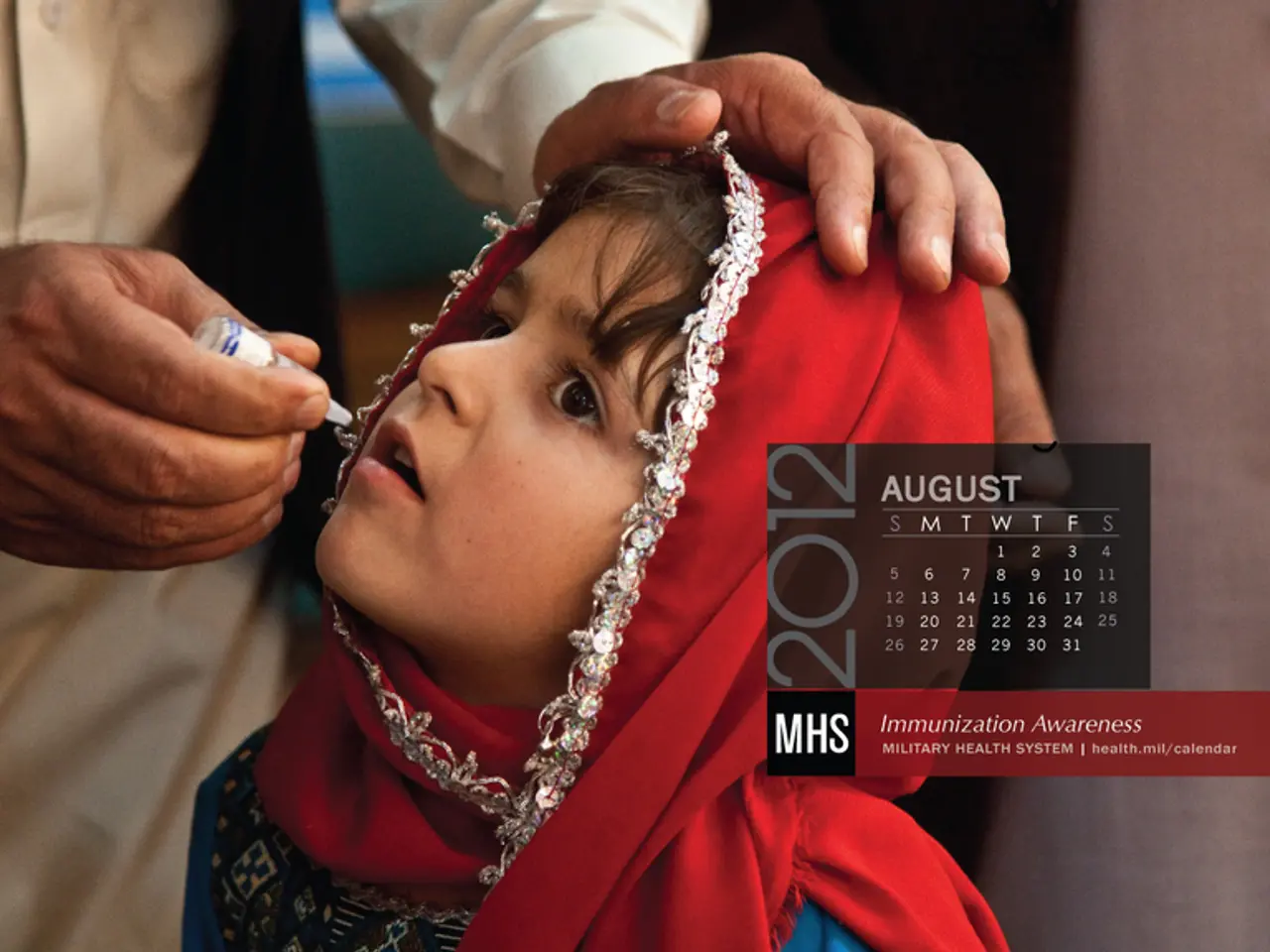CDC advisory body decides against advocating widespread vaccination for all U.S. citizens regarding COVID-19
The U.S. Centers for Disease Control and Prevention (CDC) Vaccine Advisory Committee has been busy making recommendations on several vaccination matters.
In a significant development, the Committee has recommended that all pregnant women in the United States be tested for Hepatitis B. The Advisory Committee on Immunization Practices (ACIP) had initially proposed delaying the administration of the hepatitis B vaccine to newborns, starting at one month of age, unless the mother is positive for the virus. However, the panel decided to table a decision on this proposed schedule change.
The Committee is also considering changes to the MMRV vaccine requirements. They have recommended that children under 4 receive their first dose of protection against Measles, Mumps, Rubella, and Chickenpox in separate shots, not a combination version known as MMRV. Furthermore, the Committee has recommended that the government's Vaccines for Children program align its guidance with the narrower MMRV usage.
Outside the CDC's Chamblee campus, former CDC employees and medical experts have been protesting, warning that mixed messages from health leaders could erode public trust. Dr. Kirk Milhoan, a CDC Vaccine Advisory Committee Member, stated that the panel is trying to bring back a little more nuance and explain to people that this is how they make decisions about vaccinations.
Independent pediatric and infectious disease specialists have stated that the hepatitis B vaccine is safe and has helped infant infections drop sharply. Worried about access, leading medical groups, including the American Academy of Pediatrics, have issued recommendations that the vaccines be available to anyone aged 6 months and older who wants one, including pregnant women.
Meanwhile, many families will look to their local doctors for guidance regarding COVID-19 vaccinations. In a series of votes, advisers to the CDC didn't specifically recommend vaccination but said people could make individual decisions. The divided panel narrowly avoided urging states to require a prescription for the COVID-19 shot. Health Secretary Robert F. Kennedy Jr.'s new vaccine advisers declined to recommend COVID-19 vaccinations for anyone, leaving the choice up to individuals.
As the pandemic continues, it's crucial to stay informed about the latest recommendations and guidelines from health authorities. Data released by the CDC in June showed that the virus resulted in 32,000 to 51,000 U.S. deaths and more than 250,000 hospitalizations last fall and winter. Most at risk for hospitalization are seniors and young children.
In response to the ongoing pandemic, several states have announced policies to ensure access to COVID-19 vaccines regardless of the ACIP decision. People in many states, including Georgia, are reporting frustration as they try to determine or prove if they qualify for updated COVID-19 vaccines.
The Food and Drug Administration recently put new restrictions on this year's shots from Pfizer, Moderna, and Novavax, reserving them for people over 65 or younger ones who are deemed at higher risk from the virus. The CDC has yet to issue official guidance on these changes.
As always, it's essential to consult with healthcare professionals for personalized advice and to stay updated on the latest developments in vaccination policies.






